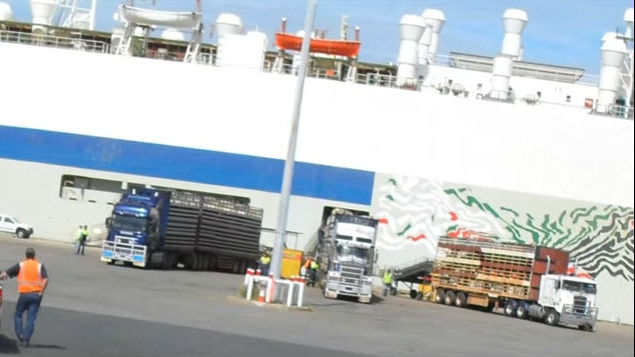Election to Decide Fremantle's Future

Plans for a highway extension and a new live export terminal at Fremantle port in Perth are being hotly debated in the lead up to the West Australian state election in March.
The state opposition Labor party says it will axe the A$450 million ($347 million) extension of Roe Highway across the Beeliar Wetlands and the entire Perth Freight Link if it wins the election. The Link project has face ongoing protests and court appeals over environmental and Aboriginal heritage concerns.
Opposition leader Mark McGowan said the move would free up a total of A$1.7 billion ($1.3 billion) for other projects. McGowan wants to build a new outer-harbor port at Kwinana, also in Perth, because he says Fremantle is nearing capacity.
The state’s Liberal Government released the contract for Roe 8 extension in October last year, despite the up-coming election, with current Premier Colin Barnett predicting Labor would complete Roe 8 if elected.
If he remains in power, Barnett has pledged to build a A$110 million ($85 million) live export facility at Kwinana, funded by the sale of the utility Western Power. The move would free up two berths currently used for live exports from Fremantle Port.
Around 70 livestock carriers berth at Fremantle annually, and 1.8 million head of livestock were exported from the port in 2015-16. Two million head are forecast to be exported in 2016-17.
The new facility would be built close to Kwinana’s bulk terminal so that existing facilities could be used for truck access. The new live export facility would be able to berth the largest livestock carriers in the world and to have a large truck turning apron.
“This will be a world-class dedicated livestock and fodder loading system that will quickly and efficiently turn ships around in the minimum of time, an important factor for the viability of our sheep and cattle producers,” said Barnett.
He said the new facility would end the need to move sheep and cattle trucks through Fremantle to the north quay, overcoming community concern about noise, dust and smell.
“The live export market out of Western Australia is worth about half a billion dollars or more, and it’s rapidly growing as populations grow in the Asia Pacific and the Gulf and Indian Ocean regions,” said Barnett.
“For Western Australia, with investment in stockyards and the like, and measures to grow the numbers of cattle and sheep, there is a weakness in our system and that is that most of our exports go out through Fremantle, an inner-city port, and it is limited.”
Barnett says his plan would allow Fremantle to capitalize on its growing attraction as a cruise ship destination and free up the use of berths 1 and 2 at the mouth of Fremantle Port's inner harbor.
The Greens party has objected to Barnett’s Kwinana live export development saying the money would be better spent developing Northern Abattoirs.
Member for South Metropolitan Region Lynn MacLaren said the plan was pitched to earn favor from shooters, fishers and farmers in the Liberal Party’s desperate bid for minor party preferences.
“The lack of transparency from the Barnett Government astounds me,” MacLaren said. “The Premier has been in closed-door negotiations with James Price Pty Ltd for years since the latter took the State government to court over port facilities at James Point.”
The company had planned to build a port built at James Point, located at Cockburn, Fremantle, to provide easier access for live exporters rather than having to truck sheep through the built-up areas of Fremantle.
“Now the Liberal Party is trying to appease the party they fought in court, with A$110 million of taxpayers’ money.
“The Greens oppose live exports and have proposed an alternative packaged meat trade which could create many jobs in rural areas.”
Agriculture Minister Mark Lewis said the Liberal-led government had always been a strong supporter of the live export trade. “While chilled meat products are appropriate for some markets, many of the world's most populous countries, which have the greatest need for meat, do not have a well-developed refrigerated distribution network,” he said.
